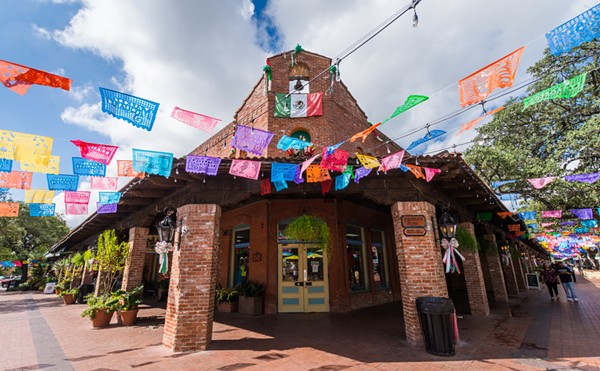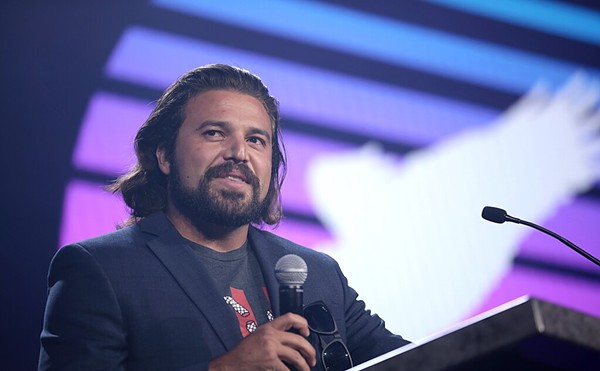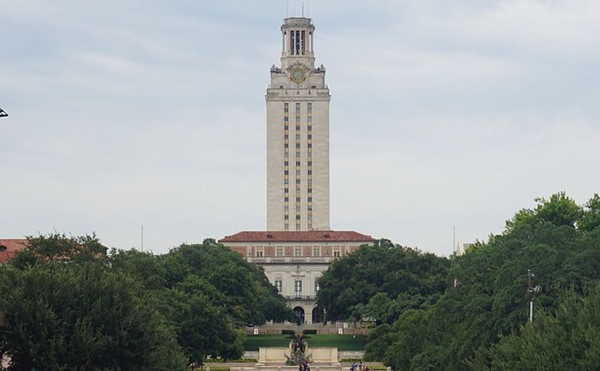He was 11 when he went to work at the coffee plantation.
At 14 he became a machinist and began to organize workers.
Four years later, Gerardo Cajamarca Alarcon was thrown out of his first factory for trying to form a metal-worker’s union. An inaugural round of death threats followed.
Though Cajamarca had already seen many friends killed fighting for workers’ rights, alternatives for a poor Colombiano were few: join the military, join the guerillas, or watch silently as friends and fellow workers continued to be killed by corporate- and government-backed paramilitary outfits.
None sat well with the self-professed revolutionary.
“There was no other way, no way out, no other path,” Cajamarca, now 41 with a wife and two children, said in a telephone interview last week. “These problems can’t be solved with violence.”
He kept organizing.
A union life can be a short affair in Colombia. Human rights groups report that 7 out of every 10 union members killed around the world are killed in Colombia. Since 1986, there have been 2,515 unionists killed in the fractured state.
Still, Colombia, considered a key U.S. ally in an increasingly less malleable Sudamericana, is one of three Latin American states the Bush Administration hopes to seal Free Trade agreements with in coming months.
If you know nothing else about Washington politics than the border wall, you know the weather in the Capitol has grown downright frosty where the rest of the world is concerned. In this new “With Us or Against Us” era, Americans like high walls, obvious boundaries, and compliant neighbors. We don’t like surprises.
But as business interests press their case for expanding NAFTA-like agreements to Colombia, Peru, and Panama, a growing collection of Americans are coming to question the human-rights implications of so-called Free Trade.
The xenophobic cold front, inspired by 9/11’s psychological shock and aftershock, is thawing in patches as Americans watch a supremely unpopular war erode long-standing alliances and witness the profound impact of globalization on American workers.
When union members, religious groups, environmentalists, and highly visible, small bands of anarchists ruled the streets during 1999’s Battle in Seattle, the American public, for the most part, didn’t know what to think about the World Trade Organization protestors. However, with 13 years of NAFTA hindsight and more than 11 free-trade agreements down, most now have developed opinions about such agreements.
“For starters, you can see what they don’t do. They don’t live up to the hype,” said Marc Jacobson, director of the Texas Fair Trade Coalition. “The problem is, `FTAs` are written by — and thus, for — the multinational corporations.”
When NAFTA expanded to Central America under the Central American Free Trade Agreement in 2004, the Catholic Church’s president of the Bishops’ Secretariat of Central America in Guatemala, Alvaro Romazzini, wrote: “People who wonder why there is such passionate opposition to CAFTA … need look no further than the results of NAFTA.”
“NAFTA,” he wrote, “displaced 1.5 million Mexican peasant farmers. Many of these displaced farmers sought industrial jobs, causing Mexican wages to drop by 20 percent. Communities and families were torn asunder as those who lost their livelihoods undertook the perilous journey to the United States in hopes of finding some way to support their family.”
Rather than examine root causes behind that northward march, Washington’s response is best personified in Lou Dobbs’s sustained anti-immigrant howl.
One Central American state still resisting CAFTA is Costa Rica — and it’s not insignificant that the country also happens to be the most educated in the region, said Francisco Durand, professor of Latin American studies at University of Texas at San Antonio. “There is a more informed debate,” he said.
Bringing FTAs to South America, where anti-American sentiment has finally risen into the halls of power, poses greater challenges. One-on-one negotiations with the few countries willing to enter into such economic alliances with the U.S. appear to be the only way forward for Free Traders.
While Congressional Democrats initially resisted Bush’s most recent agreements with Panama, Peru, and Colombia, a more congenial tone has been struck since U.S. Rep. Charles Rangel got stronger environmental and labor provisions stitched in.
Should Democrats take comfort in Rangel’s amendments, however, Durand has a warning: “In the Third World, the Constitution is one thing and reality is another.” Durand, who returned from Peru three weeks ago, predicts approval of the Peru deal will bring “major social upheaval” similar to that which inspired the mobilization of Zapatistas from the jungles of Chiapas.
“The Neo-Liberal government is losing support and the chances for a Chavista offensive are becoming stronger,” he said.
Meanwhile, Free Traders are working vigorously to defend and promote the nation’s “export culture” as Democrats vacillate between heeding the interests of Big Business and responding to the alarming U.S. trade deficit, which has blossomed from $2.5 billion a month during NAFTA’s youth to today’s deficit of more than $2 billion per day.
While the Bush Administration has expressed interest in Congress taking up the agreements in the order they were negotiated, U.S. Chamber of Commerce President Tom Donohue said he’s not particular.
“I’ll take as many `FTAs` as I can get, because I don’t want America to be seen as people that have rolled up the sidewalk and are not playing in the game,” Donohue told Inside U.S. Trade. Apart from the obvious profit motive for U.S. companies, signing the free-trade deals will also send out the signal that “we’re not going to let everybody else in the world come in and take over the Americas,” he said, echoing colonial-era Monroe Doctrine theory.
Still, most observers expect Congress, moral qualms or no, to sign off on Peru.
Colombia presents more striking political challenges. According to non-governmental human-rights group Escuela Nacional Sindical, the killing of union organizers has slowed in Colombia. ENS reports that the 209 union deaths in 2001 had dropped to 73 in 2005. Amnesty International findings, however, suggest that assassination is being replaced in some cases by a systematic intimidation of the family members of targets. Such a shift would permit the government to claim progress on the suppression of paramilitary violence while allowing repression to continue.
“Attacks against relatives are intended to intimidate trade unionists and undermine their work and may also be designed to limit the numbers of human rights violations registered as attacks against trade unionists,” a recent AI report reads.
Companies doing business in Colombia have also been found complicit. Chiquita Banana, linked to the use of child labor in neighboring Ecuador by Human Rights Watch, was just fined $25 million for paying off both the right-wing United Self-Defense Forces and the rebel army of the Revolutionary Armed Forces of Colombia. Both groups are on the U.S. list of foreign terrorist organizations. Cajamarca also accuses the company of running guns to the paramilitaries and participating in the cocaine trade – something Chiquita strongly denies. Other major players in Colombia, Coca-Cola and Drummond, have also been sued for alleged human-rights abuses.
It was in the flower-growing town of Facatetiva in central Colombia that decades of union activity led Cajamarca to popular politics and a seat on the city council. But after six years there, he was finally forced to flee. He recalls when the long string of death threats escalated into violence: when he was arrested and beaten by local police; when paramilitary troops shot up the building where he had convened a campaign meeting; when the police, based only two blocks away, refused to intervene.
“We felt fear. The same fear I’ve always lived with,” he said. “We’ve had to really live with that fear. But that’s what pushes us to keep fighting. There’s no other way to the struggle.”
After he got his wife and children out of town, Cajamarca left Facatetiva, but continued his work investigating human-rights abuses in several nearby towns. That’s when the paramilitary members went to his mother’s house and smashed out the windows. Only then did he realize it really was time to go.
Cajamarca found refuge in the U.S. with the United Steelworkers these past three years and comes to San Antonio next week to discuss Free Trade issues at a forum sponsored by Texas Fair Trade Coalition.
He sees the most drastic elements of Professor Durand’s Peruvian warning developing in Colombia if Congress approves the FTA.
By driving farmers off their lands, by moving them away from traditional corn and grains and putting them on African Palm oil, as one proposal suggests, the decimation of small growers will be “worse than the Spanish conquest of 500 years ago,” Cajamarca says.
It would also be a “huge win” for the paramilitaries, he adds, who have seized massive amounts of land from farmers in recent years.
Consider: it takes up to 12 years and large tracts of land to grow and harvest African Palm.
“Who has land like that? Who has the time to wait?” Cajamarca asks. “Only the rich. Only the paramilitary.” •
____________________________________________
TALK
Murder, Plunder, and Corporate Profit: The Trojan Horse of Free Trade in Colombia
6:30-8:30pm
Thu, Sep 27
Free
St. Mary’s University, AT&T Center, Room 108
To educate the community about what is happening in Colombia and how a free-trade agreement will harm both workers in Colombia and San Antonio.
Organized by Texas Fair Trade Coalition, the forum is being co-sponsored by 32 local and national organizations, including the San Antonio Labor Council, SEIU, the San Antonio Area Progressive Action Coalition, the Labor Council for Latin American Advancement of San Antonio, and City Councilwoman Lourdes Galvan.

















